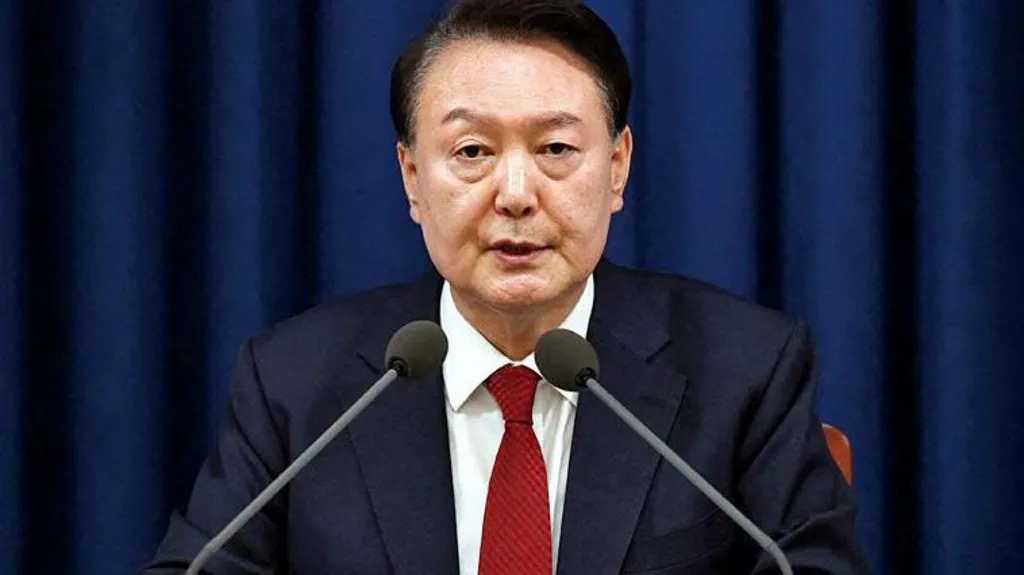
Yoon Suk Yeol’s Martial Law Gamble: What Was He Thinking?
In a late-night shocker, South Korean President Yoon Suk Yeol announced martial law, thrusting the nation into chaos and drawing fierce backlash. Within 24 hours, the order was overturned by parliament, and Yoon now faces impeachment proceedings and calls to resign.
A Bid for Power Amid Controversy
President Yoon declared martial law to “protect the nation from anti-state forces,” claiming the opposition-controlled parliament was a “den of criminals.” However, his decision is widely seen as an attempt to strengthen his grip on power after a series of political and personal scandals, including:
- 2022 Halloween crowd crush response: Criticized for mishandling the tragedy that killed 159 people.
- Dior handbag scandal: His wife was accused of accepting lavish gifts, fueling allegations of impropriety.
- April 2023 parliamentary defeat: Left Yoon politically vulnerable, with his approval rating plummeting below 20%.
Misreading South Korea’s Democracy
Yoon’s announcement reminded South Koreans of the country’s authoritarian past. Martial law was last imposed in 1979 during a military coup and continued until 1987. Many feared a return to those dark times, especially given Yoon’s controversial praise of authoritarian leader Chun Doo-hwan during his campaign.
The parallels were chilling:
- In 1980, the Gwangju uprising against martial law led to the massacre of around 200 pro-democracy activists.
- During decades of military rule, dissenters were branded as “communist spies,” arrested, or killed.
Yoon’s gamble to rally conservative support backfired spectacularly as South Koreans rallied to defend democracy.
Fear of Prosecution?
South Korea’s political landscape is fraught with legal battles against former leaders:
- Park Geun-hye: Imprisoned for corruption.
- Lee Myung-bak: Sentenced to 17 years for bribery.
- Roh Moo-hyun: Took his own life under investigation.
Yoon’s drastic move may reflect his fear of facing similar consequences after his term ends. Opposition lawmakers have hinted at potential legal challenges against him.
Political Fallout and Future
President Yoon now faces:
- Impeachment proceedings in parliament.
- Resignation calls from opposition leaders and protesters.
- Internal rebellion within his own People Power Party.
Despite the withdrawal of martial law, public anger remains. Protests continue, with thousands demanding Yoon step down.
South Korea’s Democracy Stands Firm
The swift response of parliament and protesters underscores the resilience of South Korea’s democracy. In less than 24 hours, the country rejected the most serious challenge to its democratic norms since the 1980s.
South Korea remains a vibrant democracy, refusing to yield to authoritarian threats. As Yoon faces the fallout of his failed gamble, one thing is clear: the country will not tolerate a return to its authoritarian past.





